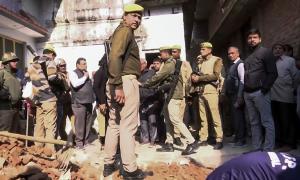Justice S Nagamuthu reserved the orders without fixing any date after hearing elaborate arguments of Tamil Nadu government, Nalini's counsel and Janata Party president Subramanian Swamy, who was allowed by the HC to assist it in hearing Nalini's petition.
Reserving the order, Justice Nagamuthu, however, directed Advocate General G Masilamani to file an affidavit stating why the advisory board, which looked into Nalini's plea for premature release, has not issued notices or intimated about its meeting to all its members.
Nalini's counsel S Doraisamy had raised an objection in the court that the board lacked the stipulated quorum of seven members while it considered her plea.
Objecting to Subramanian Swamy's contention that remission cannot be applied twice on a convict, Doraisamy submitted that there were no such rules preventing the governor from exercising power under Article 141 on a convict who had already availed a remission or commutation of sentence earlier.
Nalini was initially sentenced to death. It was later commuted to life following an appeal by Congress president Sonia Gandhi on humanitarian grounds that she had given birthto a girl in the jail.
The TN advocate general submitted that though there is such provision, it is the power of the state to consider a prisoner for commutation or remission. This power of the state should be preserved and no one should be allowed to challenge it. Masilamani, however, submitted that section 434 of Criminal Procedure Code also stipulates that life sentence of a prisoner can be commuted for remission if he had served minimum of 14 years in jail.
Meanwhile, Subramanian Swamy strongly opposed Nalini's premature release and contended that the gravity of offence she had committed can be considered as a major reason for not granting remission to her. The court also heard the arguments of counsel representing Jayakumar and Robert Payas, other two life convicts in the Rajiv Gandhi assassination case, seeking an early release and reserved its orders.








More from rediff